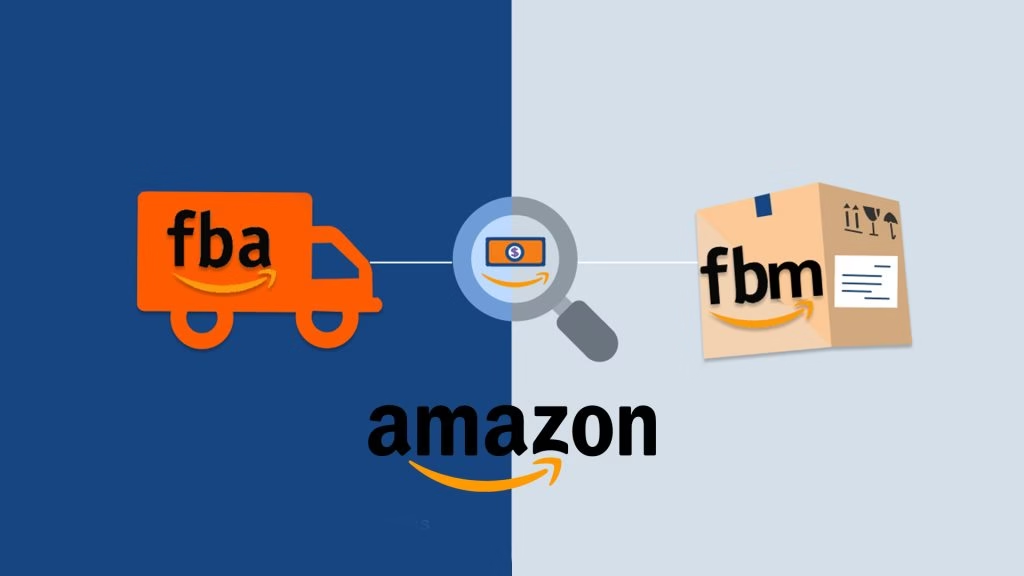Navigate the changing economic landscape of Malaysia and unlock new opportunities in international logistics. Learn how to thrive in this dynamic market.
The economic landscape in Malaysia is evolving amid a wave of trade policy shifts, tariff uncertainties, and a revised growth outlook. With discussions on “fair trade” and a recent recalibration of GDP forecasts, Malaysian businesses are facing an era of change and opportunity.
As an international logistics provider, understanding these trends can empower you to tailor your supply chain strategies and secure a competitive edge in this dynamic market.
Understanding Malaysia’s Current Economic Landscape
In recent weeks, Malaysia’s government and economic policymakers have been hard at work reviewing growth projections and trade strategies. Reports indicate that due to the imposition of tariffs and evolving discussions with global partners, the country’s official growth outlook is under review. For instance, Malaysian officials have discussed the need for “fair trade” practices with the US, an indication that trade negotiations are ongoing, and adjustments to growth policies are being made to cushion external shocks.
Meanwhile, reports from global institutions suggest that Malaysia’s 2025 GDP growth might be revised downward, with recent forecasts hovering around 4.1% due to regional slowdown factors and global market pressures.
These developments may seem daunting at first glance; however, they represent a pivotal moment for businesses—especially in the supply chain and logistics sectors. Economic recalibrations often lead to operational shifts and market realignments.
For companies in international logistics, these changes can open critical windows to offer tailored, cost-effective services that cater to evolving trade patterns and regulatory landscapes. By staying informed and agile, logistics providers can help Malaysian businesses navigate uncertainties while seizing new market opportunities.
The Impact of Global Trade Policy on Local Markets
Trade policies and tariffs have always played a significant role in shaping economic conditions. Recently, the United States’ imposition of tariffs on trading partners, including Malaysia, has sent ripples across regional economies. This phenomenon isn’t just a headline—it affects how goods flow across borders and the overall cost structure of international supply chains.
With tariffs in place and discussions underway regarding the proper balance of trade, many businesses are now forced to reimagine their logistics strategies. For instance, companies that rely on raw materials from overseas may face increased costs and longer lead times. On the flip side, these challenges also create opportunities. Flexible logistics solutions are now becoming more critical than ever. Partners who can optimize freight routing, manage customs clearance efficiently, and leverage digital logistics platforms will be in a prime position to help businesses mitigate additional costs caused by policy changes.
This scenario underscores the increasing importance of robust logistics networks that can quickly adapt to fluctuating trade conditions. Providers offering “international freight shipping Malaysia” or “customized Malaysia logistics solutions” can emphasize transparency in cost management and efficiency in transit time—an attractive value proposition for businesses contending with uncertain external pressures.
Opportunities for International Logistics Providers
While a slowing economic outlook might seem like a barrier, it is also a signal—a call for businesses to re-examine and optimize their supply chains. In an environment where regional growth projections are being trimmed, efficiency and adaptability become the benchmarks for success. Here’s why now is the right time to invest in international logistics services:
- Cost Optimization: The current economic adjustments force companies to focus on cost-effective measures. By streamlining supply chain processes and reducing lead times, logistics providers can help clients lower their operational expenditures. Optimized shipping routes, bulk consolidation, and route planning are just a few strategies that can save costs and improve reliability.
- Enhanced Supply Chain Resilience: Global events such as tariff adjustments and policy shifts create unpredictability. In such times, resilient logistics solutions that include diversified transport options and integrated digital tracking systems become indispensable. Businesses are increasingly seeking partners who not only support their shipments but also offer real-time insights and proactive management to navigate disruptions.
- Customs and Regulatory Expertise: Navigating the labyrinth of customs regulations and trade compliance is challenging. After recent policy shifts regarding “fair trade” and tariff structures, companies require logistics partners with specialized expertise in Malaysian customs clearance and international trade compliance. This knowledge enables smoother cargo clearance and minimizes delays at borders.
- Digital Innovation and Automation: The future of logistics lies in digital transformation. Innovations such as electronic data interchange (EDI), real-time tracking, warehouse automation, and predictive analytics are revolutionizing the supply chain. Providers who invest in these technologies are not only increasing operational efficiency but are also providing customers with data-driven insights to better forecast and manage their inventories.
How Economic Trends Influence the Logistics Industry
Economic trends in Malaysia and the broader ASEAN region are not just numerical metrics for policymakers—they directly impact how industries operate. Let’s take a closer look at some critical trends that are influencing logistics in the region:
- Revised GDP Forecasts and Growth Outlooks: With forecasts being downgraded amid global uncertainties, many companies are reassessing their investment plans and operational strategies. This trend means that supply chain efficiency and cost management are now higher priorities. As businesses cut back on other investments, improving logistics performance becomes a strategic imperative.
- Trade Negotiations and Tariff Reforms: The ongoing discussions between Malaysia and its major trading partners, notably the United States, underscore that trade policies are in flux. This uncertainty encourages businesses to seek logistics partners who have experience in navigating custom regulations and tariff-related complexities.
- Regional Trade and ASEAN Integration: Malaysia’s role as a pivotal member of ASEAN means that its logistics market is intricately linked with regional trade dynamics. Enhanced regional coordination and cross-border freight solutions are emerging as strategic trends that local businesses find highly attractive. For logistics providers, tailoring services that cater to inter-ASEAN trade – such as streamlined documentation processes and flexible transport solutions – can become a significant differentiating factor.
- Fluctuations in Cargo Demand: Economic slowdowns and policy adjustments can lead to unpredictable fluctuations in cargo volumes. The ability to quickly scale operations up or down is crucial. International logistics providers who can offer flexible shipping arrangements and dynamic resource management have a competitive advantage.
These trends are not only shaping the economic conversation but are also feeding directly into the core challenges faced by logistics providers. Collaborating with experienced partners who understand these macroeconomic factors can help companies remain agile and efficient as conditions evolve.
Strategies to Thrive During Economic Uncertainty
The current economic environment in Malaysia calls for businesses to become more agile and decisive. For logistics companies, this means adopting a more proactive and strategic approach. Here are several action points designed for success during these uncertain times:
- Invest in Technology and Digital Platforms: In a marketplace where real-time data can mean the difference between profit and loss, investing in digital logistics platforms is crucial. Technologies that offer real-time tracking, route optimization, and predictive analytics not only improve efficiency but also provide valuable insights for future planning.
- Adopt Flexible Contract Models: With the possibility of market fluctuations, long-term fixed contracts might become less attractive. Offering flexible or modular service agreements can appeal to clients who are hesitant to commit to rigid long-term arrangements. A focus on scalability—whether that means increased freight capacity during seasonal peaks or cost reductions during slow periods—can set you apart.
- Strengthen Local and Regional Partnerships: Collaboration is key in times of uncertainty. Building strong partnerships with local carriers, regional freight forwarders, and customs experts can create a robust network that responds swiftly to challenges. Such alliances enable businesses to tap into regional insights and benefit from streamlined operations across ASEAN markets.
- Enhance Customer Communication: Transparent, proactive communication helps build trust, particularly during economic downturns or periods of volatility. Regular updates on shipment progress, transparent pricing, and responsive customer service will ensure that clients feel supported and valued throughout their logistics journey.
- Focus on Niche Markets and Low-Competition Keywords: Audiences searching for niche services such as “Malaysia international freight forwarding” or “efficient Malaysia customs clearance” often represent untapped segments with fewer competitors. Tailoring your marketing content around these low-competition, high-value keywords can dramatically improve your organic search performance and make it easier for potential customers to find your services.
By aligning your operational strategies with actionable measures addressed above, your logistics company can not only weather economic uncertainties but also create growth opportunities by offering pinpoint solutions to Malaysian businesses in need of refined and efficient supply chain services.
How Our International Logistics Services Help You Succeed
At langxufreight, we specialize in providing end-to-end international logistics solutions that are uniquely tailored to the needs of businesses operating in today’s rapidly evolving trade environment. Our comprehensive service portfolio includes:
- Customized Freight Forwarding: Whether it’s air, sea, or land transport, our integrated freight solutions ensure timely and cost-effective delivery across borders. We emphasize transparency and offer proactive tracking solutions to keep you updated at every stage.
- Expert Customs Clearance: Navigating Malaysian customs regulations is complex, especially in times of policy shifts. Our team of experts stays abreast of the latest regulatory changes to ensure that your shipments clear customs smoothly and without unexpected delays.
- Innovative Supply Chain Management: Leveraging cutting-edge digital tools, we provide real-time visibility into your supply chain, enabling precise inventory management and quick adaptation to market fluctuations.
- Strategic Partnerships: By collaborating with local carriers and regional stakeholders, we create a seamless logistics network that supports your business goals amidst challenging times.
Our approach is grounded in the latest market insights and an unwavering commitment to efficiency and reliability. We understand that in uncertain economic periods, the agility and dedication of your logistics partner can profoundly influence your overall success. If you’re looking for a trusted partner to help navigate these changing tides and optimize your international shipping, we invite you to reach out to us for a consultation.
The Future of Logistics in Malaysia: A Bright Horizon
Despite the current economic uncertainties, the future of international logistics in Malaysia is filled with promise. As regional trade agreements evolve and technology continues to reshape the industry, there is enormous potential for companies to innovate and differentiate themselves. In the coming years, we expect to see:
- Increased Adoption of Integrated Digital Systems: Logistics providers who invest in automation and digital tracking will be better equipped to handle disruptions and provide clients with an unparalleled level of control and insight.
- Emergence of Eco-Friendly and Cost-Effective Solutions: Sustainability is becoming a significant consideration in global supply chains. Innovative logistics companies are already exploring eco-friendly shipping practices that not only reduce environmental impact but also offer cost benefits over traditional methods.
- Greater Cross-Border Collaboration: As ASEAN countries work closer together under regional trade initiatives, the opportunities for streamlined cross-border freight operations will only grow more robust. Providers that foster these relationships will be at the forefront of establishing new industry benchmarks.
- Custom-Tailored Services for Niche Markets: With more businesses demanding specialized solutions, logistics providers who can market services that address specific challenges—such as “efficient supply chain logistics Malaysia” and “cost-effective international shipping solutions”—will find themselves well-positioned in the market.
In essence, while economic headwinds may pose challenges today, they also pave the way for innovation and growth. The agility and expertise of your logistics partner become crucial assets in taking advantage of new market opportunities and driving business success in the long run.
Malaysia’s economic landscape is in a state of flux, but with disruption comes possibility. Whether it’s coping with trade policy adjustments, navigating tariff changes, or capitalizing on emerging opportunities within ASEAN, the international logistics industry is uniquely positioned to serve as a catalyst for success. At [Your Company Name], our tailored logistics solutions are designed to help you streamline operations, optimize shipping costs, and maintain an agile supply chain—with a focus on the increasingly competitive Malaysian market.
If you are looking to refine your supply chain management or simply want to explore how best to navigate these economic shifts, we’re here to help. By combining local expertise with a global perspective, our services empower you to achieve lasting operational excellence and business growth, even amid uncertainty.
Take the next step towards a more resilient, efficient, and cost-effective logistics operation by contacting us today. Let’s work together to navigate the challenges and harness the emerging opportunities in Malaysia’s international trade environment.
About Our Services: We offer international shipping services, end-to-end freight forwarding, and integrated supply chain management solutions across Malaysia and beyond. With digital innovations and expert regulatory insights, we transform logistical challenges into business advantages.
Get in touch at langxufreight for a no-obligation consultation on how to transform your supply chain operations with our proven international logistics solutions.
Amazon Launches “Haul” to Sell Low-Priced Items to Compete with Temu, Shein
Below is a deeper look at what Haul is, how it works, why Amazon is…
Amazon Logistics Models: A Comprehensive Guide to FBA, FBM, and Third-Party Fulfillment
In the dynamic landscape of e-commerce, logistics plays a pivotal role in determining the success…
A Comprehensive Guide to Commercial Invoices (CI) in Cross-Border Logistics
Discover the essential elements of commercial invoices in cross-border logistics. Our comprehensive guide simplifies the…





